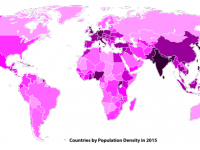Wallace Hume Carothers and the Invention of Nylon
On April 27, 1896, American chemist and inventor Wallace Hume Carothers was born. He is credited with the invention of nylon, the first synthetic polymer fibre to be spun from a melt. Carothers produced this polyamide, by condensation of adipic acid and hexamethylenediamine working for the DuPont chemical company as head of organic chemistry research. “Living in the midst of abundance we have the greatest difficulty in seeing that the supply of…
Read more





